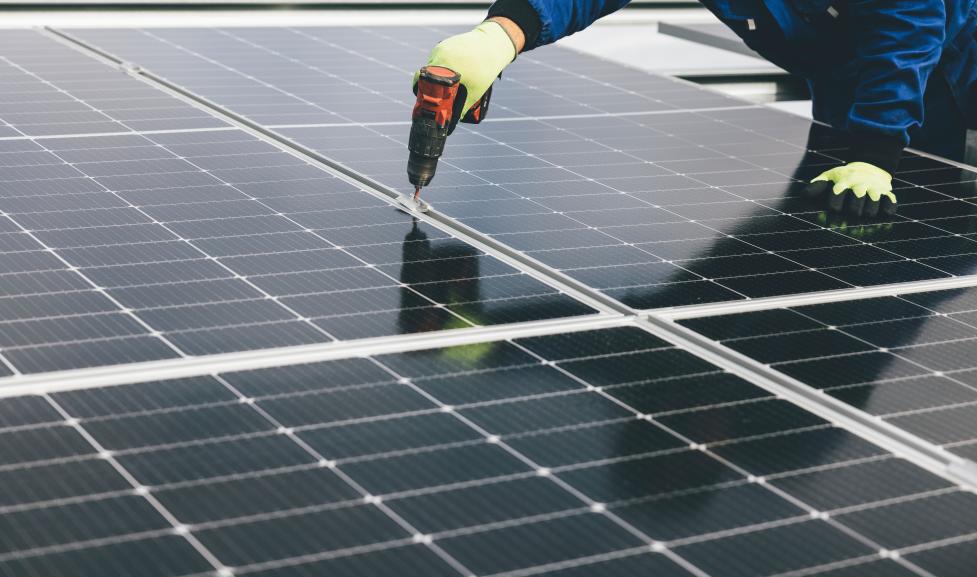

The city is in the process of updating its Energy Conservation Code. Learn more about the process and proposed updates.
Current Phase Community EngagementThe City of Boulder Energy Conservation Code sets minimum energy performance standards for newly constructed and renovated buildings.
The code is updated on a three-year cycle, the latest revision was approved by City Council on June 6, 2024. The new code will go into effect on Dec. 1, 2024. The city’s current code is a more rigorous, local version of the 2018 International Energy Conservation Code . With every code update, the city aims to set a path toward net-zero emissions for all building operations, an important milestone in meeting Boulder’s broader citywide target of net-zero emissions by 2035.
They also support making indoor spaces healthier and more comfortable. People spend as much as 90% of their time inside, where they are exposed to unhealthy fumes from gas equipment. Energy codes make the transition to healthier electric alternatives a standard in new buildings, helping occupants breathe easier and join our effort to address climate change.
The overall, long-term goal is to build high performing residential and commercial buildings that efficiently and effectively serve the needs of their occupants without contributing to the climate crisis. The objectives below are designed to support this overarching goal.
The most significant changes include:
This update will require that most equipment and appliances installed as part of a new construction project or major renovation be electric. Natural gas appliances will still be permitted in some applications, such as commercial kitchens, scientific facilities and certain industrial buildings.
This update adjusts existing requirements to align with new state mandates, and better supports electric vehicle adoption rates.
In addition to the all-electric appliance requirements, the energy code update will:
In 2020, the city introduced the Energy Use Intensity (EUI) performance pathway. The EUI is the measurement of the total energy use per square foot of building space. The code update will add Fixed EUI Performance targets for large commercial, retail, and restaurants in addition to the current building types permitted. Reference standards will also be updated to the newest versions.
With the cost of renewable energy decreasing, some projects simply install large solar arrays to achieve building performance requirements instead of investing in efficiency upgrades. The updated code will maintain envelope efficiency standards outlined in the 2020 code to ensure all elements of a newly constructed commercial building’s envelope – its windows, walls, floor slabs, roof assemblies and doors – remain efficient and are not traded-off for other efficiencies in the building.
Commercial projects that use fossil fuels will be required to offset 100% of those fuels through on-site renewable energy generation.
Every part of a building creates greenhouse gas emissions through the production and transport of materials used to construct them. We call these emissions embodied carbon.
Preserving structures and reusing and recycling building materials prevent us from generating more carbon because we are using what already exists instead of creating something new. While the energy code specifies how energy gets used in buildings, it is just one of many codes that govern building construction. The city expects to begin an update to the rest of these codes in 2024, and reducing embodied carbon will likely be a key part of that effort.
| Building Type | 2020 CoBECC | 2024 CoBECC | Comments |
|---|---|---|---|
| Residential | 1 dedicated 40A, 208/240V circuit | No Change | |
| Multi-Family (includes hotels) with 10 or less parking spaces | 1 space pre-wired | 100% of spaces pre-wired | |
| Multi-Family (includes hotels) with greater than 10 parking spaces | 5% of spaces with charging equipment installed 10% of spaces pre-wired 40% of spaces with conduit installed and service capacity available for future use | 5% of spaces with charging equipment installed 15% of spaces pre-wired 40% of spaces with conduit installed and service capacity available for future use40% of spaces with conduit installed | |
| Commercial Buildings with 10 or less parking spaces | 1 space pre-wired | 2 spaces pre-wired | Also lowers definition of small lot from 25 spaces to 10 spaces |
| Commercial Buildings with greater than 10 parking spaces | 5% of spaces with charging equipment installed 10% of spaces pre-wired 10% of spaces with conduit installed and service capacity available for future use | 5% of spaces with charging equipment installed 10% of spaces pre-wired 10% of spaces with conduit installed and service capacity available for future use 20% of spaces with conduit installed | |
| Parking Garages | N/A | 100% of spaces must at least have conduit installed | See Multi-Family or Commercial Buildings above for additional requirements |
Read our answers to frequently asked questions about the proposed energy code updates.
Will the building code update increase the cost of construction?As part of the code update, staff and city consultants are analyzing the financial impacts of different proposed requirements. While some elements of the proposed code have increased costs associated with them, other elements are expected to reduce costs. As with past code updates, staff’s recommendations to City Council will strive to ensure that savings from efficiency requirements offset any increases in initial construction costs.
How does Boulder’s code compare to other municipalities?Many Colorado communities have adopted the 2021 International Energy Conservation Code (IECC), which is the current national code. Boulder’s 2024 energy code is comparable and, in some cases, more stringent than the 2021 IECC. The update will align Boulder with communities that have both adopted the 2021 IECC and have set all-electric requirements for new construction.
When would the new code go into effect?The new code will take effect December 1, 2024.